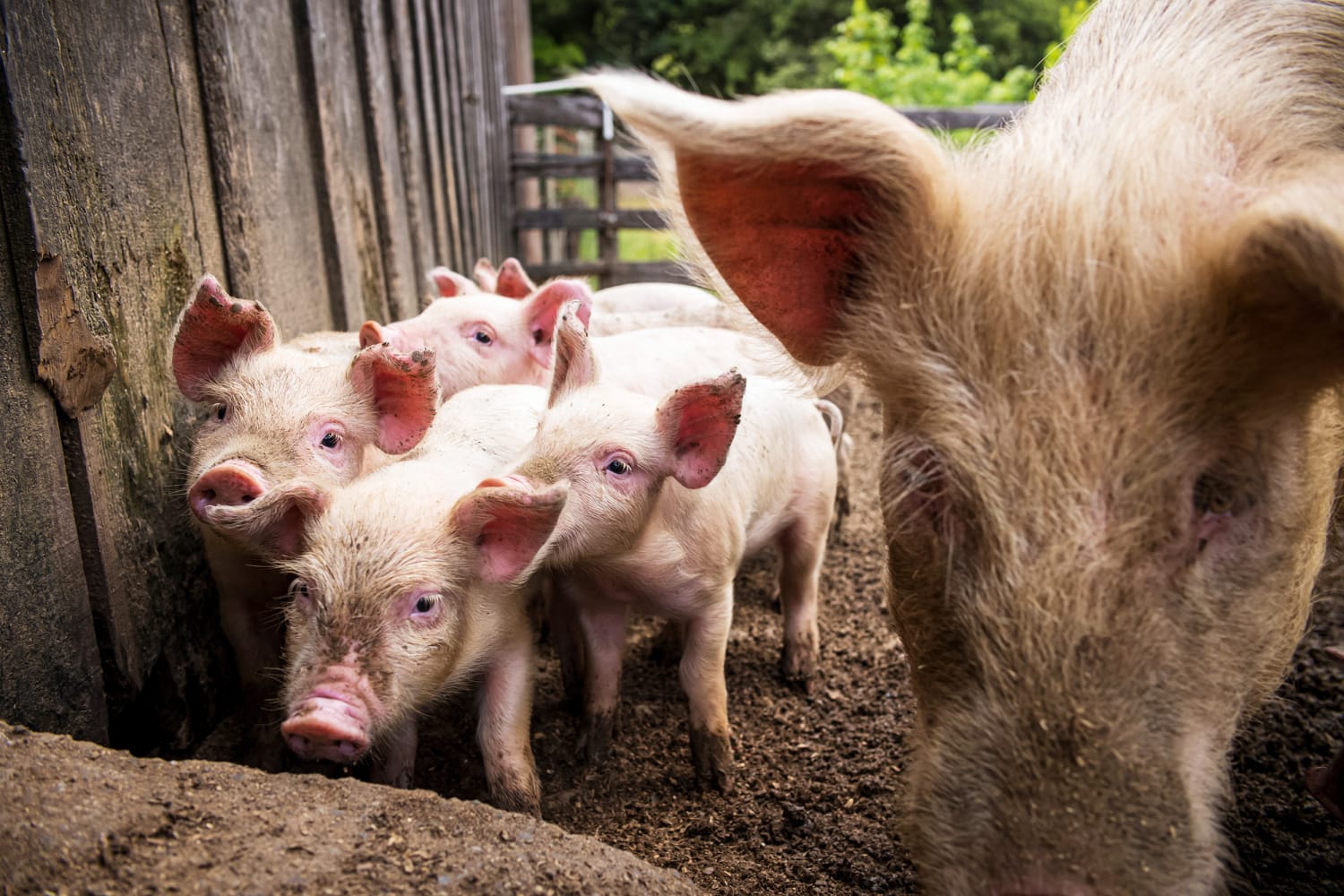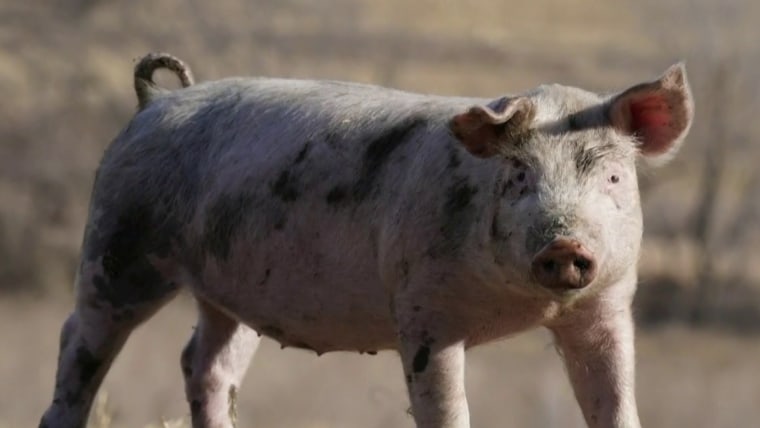WASHINGTON — A California animal welfare measure that bans the sale of pork when breeding pigs are housed in confined spaces that prevent them from moving freely goes under the microscope at the Supreme Court on Tuesday as the justices weigh whether it impermissibly regulates farmers in other states.
Californians approved Proposition 12 in 2018 with nearly 63% of the vote, a margin of more than 3 million votes. The state’s lawyers pointed out in court papers that voters were told the measure, which is not in effect, would likely increase the price of pork while providing for more humane living conditions for pigs and potentially reducing the risk of foodborne illnesses.
The National Pork Producers Council, which represents the pork industry, and the American Farm Bureau Federation, which represents farming interests, sued in 2019 saying the measure violates a provision of the Constitution called the commerce clause, which has been interpreted to bar states from interfering with interstate commerce.
The challengers say the measure impermissibly interferes with interstate commerce in part because almost all of the pork sold in California is produced out of state. The law also imposes an excessive burden on out-of-state entities without having a clear in-state benefit, they argue. As a result, they say, the law has an unlawfully broad extraterritorial effect.
Lower courts upheld the measure, prompting the challengers to turn to the Supreme Court, which has a 6-3 conservative majority.
Groups that back California say a broad ruling against the state could limit the ability of states to enact laws on a whole range of issues, including measures aimed at addressing climate change, such as through efforts to reduce reliance on fossil fuels by promoting renewable energy.
“What the pork producers are asking for is quite unprecedented,” said Brian Frazelle, a lawyer with the Constitutional Accountability Center, a liberal legal group that filed a brief supporting the state.
Michael Formica, chief legal strategist for the pork producers group, downplayed the impact a ruling against California could have, saying it would not prevent states from enacting environmental laws that protect the health of their people.
“Everything that they seem concerned about seems really a red herring,” he said.
A ruling that upholds the law, he added, would embolden other large states like Texas and Florida to enact other measures that would affect the nation as a whole. For example, Texas could require out-of-state companies to attest that all their employees have legal immigration status, Formica said.
The groups say in court papers that Proposition 12 “will transform the pork industry nationwide” because currently nearly all farmers keep sows in pens that do not comply with the law.
That view has been contested by California and its allies, including meat producer Perdue Premium Meat Company, which filed a brief in the case saying that its Niman Ranch brand has for years been raising hogs that would have been in compliance with Proposition 12’s requirements.
California Attorney General Rob Bonta, who is defending the law, said in court papers that the measure is valid under the commerce clause because it is not aimed at benefiting California producers over out-of-state competitors. The Supreme Court would have to place new limits on states if it embraced the challenger’s arguments that a regulation tied to in-state sales can be invalidated because it has a big practical impact on other states, he added.
The Biden administration has backed the challengers in the case, with Solicitor General Elizabeth Prelogar saying that Proposition 12 does unreasonably restrict interstate commerce in part because it is regulating the welfare of animals that are not inside the state’s borders. The stated benefits also fail to justify the sweeping nature of the law because its health benefits have not been established, she argued.
As a result, Proposition 12 is fundamentally different from environmental laws with out-of-state impacts that do have concrete health benefits and have previously been upheld, Prelogar said.
Source: | This article originally belongs to Nbcnews.com










